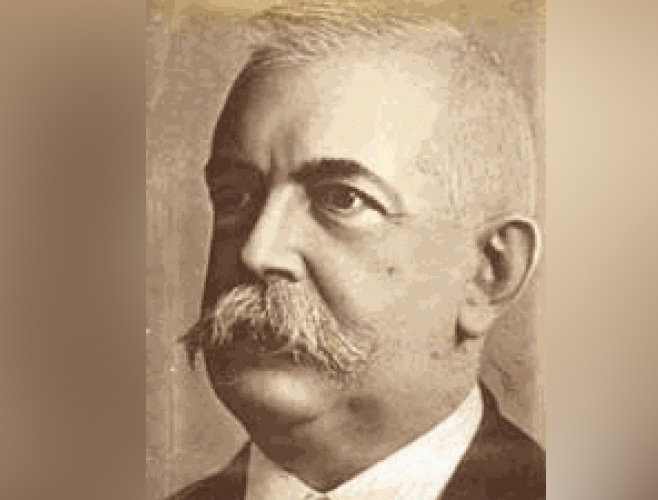Among the great personalities of Cuban history, Enrique José Varona stands out as one of the most influential intellectuals of the late 19th and early 20th centuries. He was born in Puerto Príncipe on April 13th, 1849, where he received a deep humanistic training from a very young age.
His link with literature began from a very early age, as evidenced by his collaborations with El Fanal since 1867. From the age of eleven he began learning languages, allowing him to dominate Latin, Greek, English, Italian, French and German over the years. He obtained his high school diploma in the city of Matanzas and in Havana the degrees of Bachelor and Doctor of Philosophy and Letters. In 1880 he gave his famous “Philosophical Conferences” on Logic, Psychology and Morality in Havana.
He put into practice cutting-edge ideas to open the doors of teaching to various social sectors, about education and women’s rights. To make this a reality, in 1899 he accepted the position of Secretary of Public Instruction and began to work on what was called The Varona Plan. In his tireless work for education, he also worked as a university professor, wrote essays and disseminated his philosophical ideas.
One of his most important tasks in the world of letters was the collaboration with José Martí in the newspaper Patria. He joins the project from New York and also contributes to the cause of the libertarian war in preparation. After the death of the apostle, Varona remains directing the newspaper.
Professor Varona’s intellectual work was rich in aspects. He published books of poetry and essays, to which he added numerous newspaper articles. He was included in the membership of the National Academy of Arts and Letters, of the Royal Academy of Medical, Physical and Natural Sciences of Havana, and of the Anthropological Society of Cuba, of which he was president. To his list of deserved recognitions are added that of Honorary Professor of the University of Havana and Honorary President of the Academy of Cuban History.
He collaborated in numerous national and foreign publications such as: Cuba Pedagógica, La Escuela Moderna, Heraldo de Cuba, Cuba Contemporánea, El Mundo, La Novela Cubana, Cuba y América (Magazine), El Tiempo, Diario de la Marina, Revista Bimestre Cubana, Revista Posters, Revista de Oriente, Hispanoamérica (from Honduras) and Repertorio Americano (from Costa Rica).
When the intervention of the United States in the Spanish-Cuban conflict occurred in 1898, he initially believed that this could be beneficial for Cuba, a position that he would later rectify when the second North American intervention took place in 1906. He then understood the significance and reality of the Platt Amendment and the situation of dependency that Cuba had.
Due to his deep critical sense, some of his time came to accuse him of pessimistic, passivity or lack of faith in changes. His contact with young people who were fighting for justice and a better world, whom he exhorted to rise to the level of the dawning future, essentially belies such criteria.
All this position of disgust at political events caused him to distance himself for a time from causes of this type. He decides to rejoin and founds the Conservative Party, which he chaired. He accompanied Major General Mario García Menocal as vice president during his first term as President of the Republic of Cuba (1913-1917).
Enrique José Varona died in Havana on November 19th, 1933, at the age of 84. He never got caught up in a closed philosophical stance or a particular current, hence the greatness of him. He knew how to earn prestige in the Ibero-American intellectual field, and his works and thought will remain the best in the philosophical and pedagogical field of the American continent throughout the first half of the 20th century.
Translated by: Aileen Álvarez García






